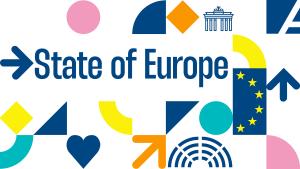The European Union stands at a crossroads, confronted with geopolitical uncertainty, economic shifts, and the need to manage enlargement strategically. This study explores six future scenarios for the EU in 2030, highlighting the key policy areas of security, economic competitiveness, and enlargement. Drawing on a structured scenario approach, it analyzes potential developments and provides strategic recommendations for strengthening resilience, fostering innovation, and maintaining political cohesion:
- European security is under pressure from geopolitical instability, hybrid threats, and critical external dependencies. The war against Ukraine has underscored the urgency of strengthening defense cooperation within the EU and reinforcing transatlantic partnerships. To enhance security, the EU must invest in defense capabilities, cybersecurity, and energy resilience, while ensuring a coordinated approach to crisis management.
- In the economic sphere, the EU must balance climate goals, demographic challenges, and growing global competition. Innovation and digital transformation will be key to maintaining competitiveness. Strategic investments in Artificial intelligence (AI), critical infrastructure, and sustainable industries can help the EU secure its economic future. At the same time, strengthening trade partnerships and addressing demographic change will be critical to long-term stability.
- Enlargement remains a defining challenge for the EU’s future. While the integration of new member states presents opportunities for political and economic stability, it also raises concerns about governance, institutional cohesion, and security risks. A structured, rule-based accession process is essential to ensure that new members meet the EU’s democratic and economic standards. Strengthening political consensus within the EU and supporting candidate countries in key reforms will be vital to a successful enlargement strategy.
To navigate these complex challenges, the EU must act decisively and strategically. The study provides concrete policy recommendations to enhance security, drive innovation, and manage enlargement in a way that safeguards the Union’s long-term stability. By taking proactive steps today, the EU can shape a future that is resilient, competitive, and globally influential.
Read the entire study ‘Shaping Europe – Scenarios for the European Union in 2030’ here as a PDF.






